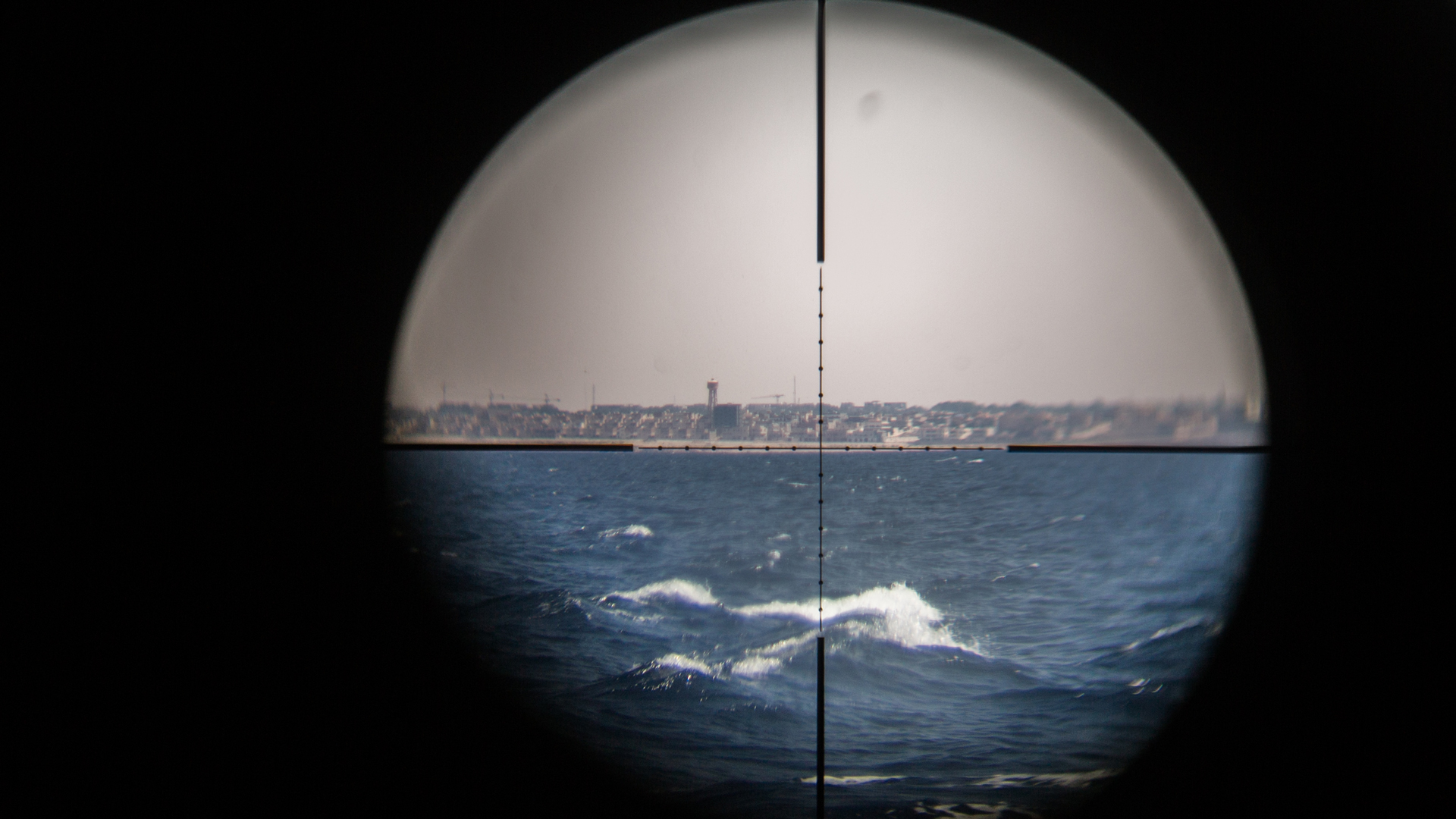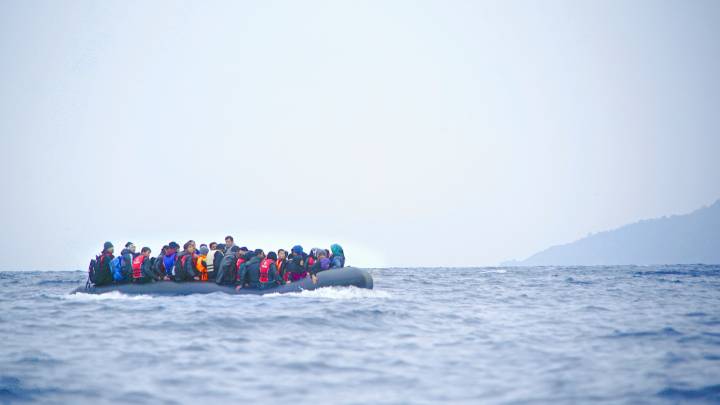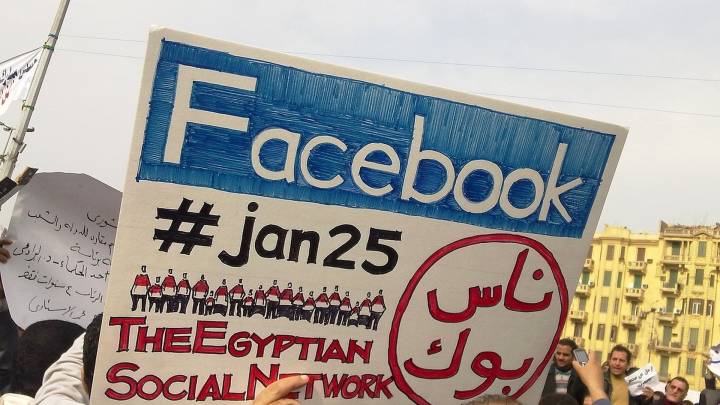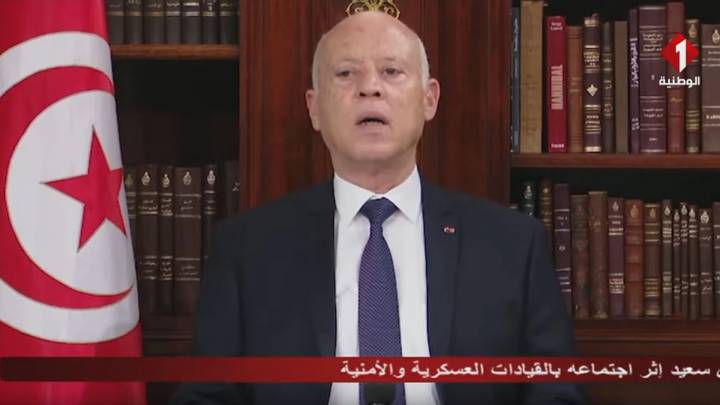Dozens of Tunisian minors born to ‘Islamic State’ fighters remain in Libyan prisons despite repeated calls by family members to bring them home.
Back in February 2016, US warplanes carried out airstrikes on a military base belonging to the so-called Islamic State (IS) outside the western Libyan city of Sabratha, targeting Noureddine Chouchane a Tunisian leader linked to two major terror attacks that hit Tunisia in 2015, one at the Bardo museum in Tunis and the other on a Sousse beach resort. Tunisian officials previously said ISIS elements behind the twin attacks had trained in Libya.
The strikes near Sabratha, about 130 kilometres from the Tunisian border, killed more than 40 people, including many Tunisians suspected of belonging to IS, according to local officials. Weapons like machine guns and rocket-propelled grenades were found in the rubble of the training camp, according to a statement by municipal authorities.
In the US attack’s aftermath, as the Tunisian authorities coordinated investigations with their Libyan counterparts into the Tunisians killed, Tamim Jendoubi, a one-year-old orphan was found at the site and detained. His Tunisian parents, both members of IS, had been killed in the airstrike.
More children either fathered by Tunisian IS fighters or brought to the self-proclaimed caliphate by their parents survived the US raid and were imprisoned.
That was when Mustafa Abdel Kebir, head of the Tunisian Observatory for Human Rights, started following closely the situation for these childen.
“70% of these detained youths were born in Libya, practically on the battlefield,” he estimates. “They haven’t been to Tunisia, they haven’t met their relatives”.
The human rights advocate said there are at least 39 verified Tunisian minors imprisoned in Libya, most of whom are in Tripoli’s Mitiga prison and the rest in Misrata with only few held in Sabratha. Among them, he continued, 26 are with their mothers while the others have lost both their parents who died while fighting with IS. Their ages range from two to 16 but the majority of them are between 5 and 12 years old, he estimates.
“The place of these kids is the school, their family home, the playground, not the prison,” says Abdel Kebir, who has been campaigning for their repatriation since 2016 often shuttling between Tunisia and Libya.
Member of Parliament Khawla Ben Aicha became concerned with the plight of imprisoned Tunisian youths in conflict areas when she was approached three years ago by the Rescue Association of Tunisians Trapped Abroad (RATTA), an NGO that advocates for the safe return of families and children caught in conflicts abroad.
In the association, family members of trapped children in Libya appealed to the Tunisian politician, who is a member of the parliamentary committe of Tunisians living abroad, so the committee would in turn call upon the government to adopt swift repatriation procedures.
Reflecting on the urgency to bring the youngsters home as soon as possible and reintegrate them, the MP observed: “These children have known the war and prison, they have been denied the most basic rights. In my opinion, every day missed in returning them is one day missed in bringing them into normal life”.
An estimated 200 kids and 100 women of Tunisian nationality are currently detained as IS family members in Libya, Syria and Iraq.
Conditions inside Libyan prisons are dire. A report by Human Rights Watch published in February described detention conditions as “living in overcrowded prison cells in Libya with acute shortages of food, clothing, and medicine”. The prisons there sell food but at exorbitant prices. The account cited two family members in Tunisia who were told by mothers of the children that some women and toddlers had been beaten by interrogators in al-Jawiyyah prison in Misrata, and that “some detainees, including children, were severely withdrawn and spoke of wanting to kill themselves”.
And with the ongoing conflict in Tripoli, conditions in the prisons are growing worse by the day said Letta Tayler, senior terrorism and counter-terrorism researcher at Human Rights Watch (HRW) and author of the report told zenith. “Tunisian families are extremely concerned about the potential for further harm to come to their loved ones as a result of the increased fighting.”
She said the escalation of violence in the Libyan capital is a “new added trauma” that brings “an extra layer of tragedy” to what is already a tragic situation for the jailed children, especially for with the largest number held in Tripoli-based Mitiga prison close to the frontlines.
“Leaving family members to languish without charge in foreign camps and prisons will compound their suffering and risk fuelling further grievances,” said the counter-terrorism expert in her report.
It’s not just in Libya where Tunisian children of jihadists are behind bars - an estimated 200 kids and 100 women of Tunisian nationality are currently detained as IS family members in Libya, Syria and Iraq, officials with Tunisia’s Ministry of Women and Children told HRW. Most of the younger children were born in IS-held areas or brought there by their parents.
Tunisian officials put the number of Tunisians who have left the country to join jihadist groups at 3,000,
Tunisia is estimated to have one of the world’s highest rates per capita of nationals joining IS abroad. Tunisian officials put the number of Tunisians who have left the country to join jihadist groups at 3,000, however other sources report more than 6,000, including 1,000 women, with up to 1,500 individuals fighting in Libya.
While other countries have been moving forward to repatriate children of IS members, Tunisia has done very little in helping to bring them home.
Since April 2017, further to pressure from the Libyan side, Tunisian families and concerned citizens, the Tunisian government has sent three delegations to Libya. Negotiations led to the repatriation of Tamim in October 2017 and two other toddlers at the end of 2018.
Tamim, who had been kept incarcerated in Mitiga prison under the control of the Special Deterrence Force, a radical Islamist militia, was freed after his maternal grandfather, Faouzi Trabelsi, went to Libya four times to try to bring the small boy home.
As for the two small children, their family hired a Libyan lawyer to negotiate with the Libyan authorities but to no avail, and no other child captives have been returned to Tunisia to date. Although officials in the Government of National Government (GNA) in Tripoli have engaged in negotiations with the Tunisian authorities, there has been slow progress in efforts to repatriate these children.
Ben Aicha, who’s been actively involved in the move to return Tunisian children of IS members, explained that one major obstacle has been posed by the Tunisian authorities who do not want to deal with Libyan militias that are jailing kids because that would mean recognising militias as legitimate actors. Doing so would create a diplomatic problem since Tunisia should only negotiate with the internationally-recognised GNA.
The Special Deterrence Force reportedly threatened to release the child detainees to the streets claiming lack of funds to keep them under guard.
In Libya, two governments compete for legitimacy and different militia groups control the detentions centres where the women and minors are kept.
“The problem is the Tripoli government does not hold control on such detention facilities, so it can’t intervene,” the Tunisian MP argued, “I personally think these minors in Libyan jails are an urgent matter, our government should deal with any actor to make sure they are safely brought home”.
From the Libyan side, the Special Deterrence Force has demanded an official commitment from Tunis to address the question of repatriation of its citizens fully in exchange for release of the women and children in Mitiga prison.
The militia has held several press conferences calling on Tunisia to take appropriate measures to retrieve the youths. Once, it reportedly threatened to release the child detainees to the streets claiming lack of funds to keep them under guard while blaming the Tunisian government for the impasse on their repatriation.
The last Tunisian delegation heading to Libya visited the Libyan Red Crescent branch in Misrata in January to take the DNA of six orphans in order to verify their identity prior to their return to Tunisia. The DNA tests established that the minors were Tunisian. Tunisian officials agreed that the orphans would be transferred to Tunisia by mid-February however the transfer did not take place.
Citing examples of other countries that have repatriated infants and women of IS members detained in Iraq, Libya and Syria, Tayler stressed that, however complex, it is “perfectly possible” for states to bring their citizens home.
Libya wants all the detainies to be returned, and the Tunisian government is reluctant to repatriate the female detainees for security concerns.
“It’s unconscionable that the Tunisian authorities are continuing to drag their feet on bringing these children homes”, the HRW senior researcher said. “What’s lacking is political will”.
One problematic issue is that Tunis is at most willing to bring back the kids only, however Libya wants all the detainies to be returned, and the Tunisian government is reluctant to repatriate the female detainees for security concerns or fear of social disruption back home, according to local media reports.
For Ben Aicha, however, handling the mothers should not constitute a problem since if Tunisia deems these women to be security threats, they can screen and, if appropriate, monitor or prosecute them upon repatriation in line with fair trial standards. Either way, they can be evaluated and, if necessary, trialled on Libyan soil if the Libyan authorities decide to do so.
The mothers themselves refuse to be separated from their children.
Ben Aicha, the parliamentarian, a member of the secularist Tunisian political party Machrouu Tounes, thinks the main priority should be taking the kids home even if that means removing custody from the mother and giving the children over to relatives back in Tunisia.
“Those little kids didn’t make their parents’ choice. They didn’t choose to be born in a conflict zone or in prison. The government must do all it can to fasten things to get them out of there,” she contended, “It’s really painful that it’s taking so long to complete repatriation procedures.”
Yet, the human rights observatory’s president remarked that the women fear that they will be forgotten if their infants are repatriated. He also specified that, among these mothers, some with whom he had talked said they were either held against their will by their husbands, or were unaware of their husbands' IS affiliation.
Human rights activists claim that the Tunisian children and mothers should be repatriated together, even if the mothers are imprisoned when they return home.
Abdel Kebir criticised the handling of such sensitive file by both the Tunisian and Libyan sides lamenting a lack of care for what should be treated as a “humanitarian case”.
“Though it’s about minors, the dossier has become a political issue”, he voiced.
The rights activist warned that the problem is growing serious since when those youths get older, they will pose a security risk.
“If the Tunisian authorities fail to address the plight of those young detainees and repatriate them soon, what will they become? We will see another generation of terrorists to come,” he said.



